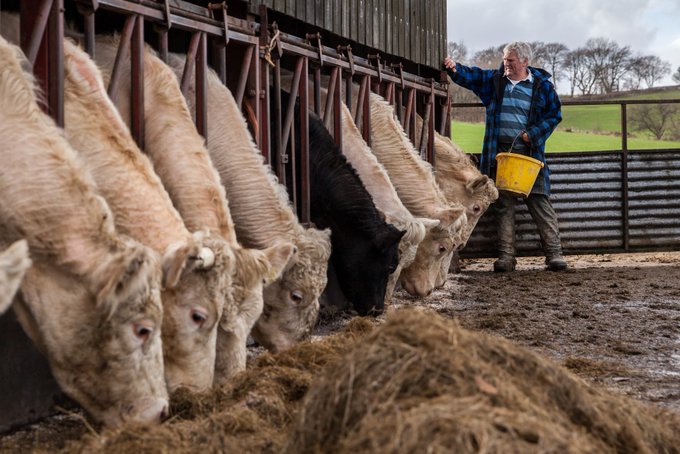 As we enter a New Year in which we all hope to return to some kind of normality, the UK’s genuine departure from the European Union after a lengthy divorce suggests 2021 will be anything but normal, irrespective of what progress is made in tackling the current coronavirus pandemic. Having breathed a collective sigh of relief after the UK and EU finally reached agreement on Christmas Eve - thereby avoiding the nightmare of tariffs that would have reduce farmgate prices for some products by 30% or more - from 1 January 2021 we will nevertheless start to see the impacts of non-tariff barriers which will make 2021 difficult to say the least for many Welsh businesses.
As we enter a New Year in which we all hope to return to some kind of normality, the UK’s genuine departure from the European Union after a lengthy divorce suggests 2021 will be anything but normal, irrespective of what progress is made in tackling the current coronavirus pandemic. Having breathed a collective sigh of relief after the UK and EU finally reached agreement on Christmas Eve - thereby avoiding the nightmare of tariffs that would have reduce farmgate prices for some products by 30% or more - from 1 January 2021 we will nevertheless start to see the impacts of non-tariff barriers which will make 2021 difficult to say the least for many Welsh businesses.
As the one-hundred-plus members who joined our Brexit webinar on December 17 learned, the Export Health Certificates required by food manufacturers to export products to the EU will cost around £150 to £200 each, meaning the total UK bill for certificates alone is expected to be between £45 million and £60 million in 2021 if exports continue at current rates. This is equivalent to between 3% and 4% of the value of current UK meat exports. Meanwhile, the additional costs of these and other non-tariff barriers are estimated to be between 4% and 8% - equivalent to a reduction of between 19p and 40p per deadweight kilo based on last year’s SQQ lamb prices.
We also have certainty regarding the budget that will replace our EU Common Agricultural Policy budget: in December 2019, the UK Government announced a Welsh BPS budget that took no account of the 15% Pillar Transfer, leaving a funding gap of £42 million. Then in November this year, they announced a Welsh funding allocation that increases this funding gap for 2021-2022 to £137 million - equivalent to a cut of around 41%.



 Welsh farmers and food producers have sighed a huge sigh of relief after it was revealed that the UK and EU are close to agreeing a Free Trade Agreement (FTA) covering key Welsh products.
Welsh farmers and food producers have sighed a huge sigh of relief after it was revealed that the UK and EU are close to agreeing a Free Trade Agreement (FTA) covering key Welsh products. The Farmers’ Union of Wales has welcomed the Welsh Government’s announcement of a direct payment ceiling that will ensure Basic Payments Scheme (BPS) payments in 2021 remain at the same level as in 2020.
The Farmers’ Union of Wales has welcomed the Welsh Government’s announcement of a direct payment ceiling that will ensure Basic Payments Scheme (BPS) payments in 2021 remain at the same level as in 2020. Nestled in the Pembrokeshire countryside just outside of Haverfordwest, the Miles family have made their home and livelihood on a dairy farm. Having moved to the Pembrokeshire countryside in 1997 Dai, Sharron and son Llŷr farm in partnership.
Nestled in the Pembrokeshire countryside just outside of Haverfordwest, the Miles family have made their home and livelihood on a dairy farm. Having moved to the Pembrokeshire countryside in 1997 Dai, Sharron and son Llŷr farm in partnership.  The Farmers’ Union of Wales is taking part in one of the biggest walking challenges yet, as it joins five nations who have teamed up to inspire rural communities to take to the countryside to help improve their mental health.
The Farmers’ Union of Wales is taking part in one of the biggest walking challenges yet, as it joins five nations who have teamed up to inspire rural communities to take to the countryside to help improve their mental health.